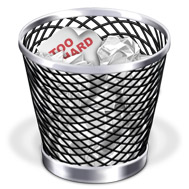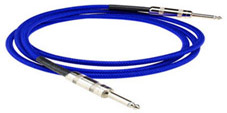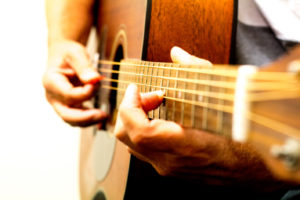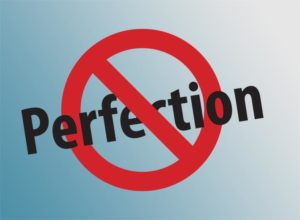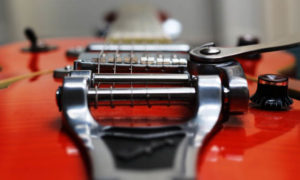Guitar Tips
Ear Training
Here is a great bit of fun. Turn on your radio and get your guitar. Now try to play every song you hear. It is great ear training and will increase your musical abilities.
Change radio stations every now and then, so that you are covering different styles of music.
………………………………………………………………………………………………………………………………………………………………………..
Do you need any help or other information on today’s topic of interest? Or maybe enquire about guitar lessons with master teacher Kevin Downing? If so, click here or call (06) 357 0057
If you are really serious about your guitar skills then you need to read Kevin’s book The Secrets of Successful Practising for Guitarists
Now also available on Amazon click here
………………………………………………………………………………………………………………………………………………………………………..
You Are Most Probably Practising Too Fast
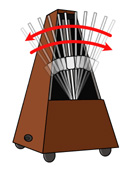 Many guitar players suffer the same problems when practising and this is the one that holds most players back the most. Going too fast initially on a new exercise, lick, or song.
Many guitar players suffer the same problems when practising and this is the one that holds most players back the most. Going too fast initially on a new exercise, lick, or song.
Whatever the final tempo of the new is of your new exercise, lick, or song, then you should start at least half that, and then work it up from there. For example, if a lick you are learning goes at a tempo of 160 beats per minute (bpm), then there are two ways to accomplish it depending on your skill level.
1/ If you are an intermediate/advanced level player start at 80 bpm. At this slower tempo iron out all the little difficult bits, and then work it up to 160bpm very slowly. Maybe with two beat increments every few days.
2/ If you are at the learning stage you might need to get used to putting your fingers on the notes first, before working on the rhythm. Then follow the instructions above maybe starting at around 60bpm.
How can you put this into your practising immediately?
………………………………………………………………………………………………………………………………………………………………………..
Do you need any help or other information on today’s topic of interest? Or maybe enquire about guitar lessons with master teacher Kevin Downing? If so, click here or call (06) 357 0057
If you are really serious about your guitar skills then you need to read Kevin’s book The Secrets of Successful Practising for Guitarists
Now also available on Amazon click here
How To Avoid Overwhelm
Only take in small amounts of information at a time. This allows the brain plenty of time to absorb it all. Bigger chunks tend to get you confused.
Robben Ford, the great blues/fusion player, said whenever he learns something new he splits it into little bits then spends time absorbing it. Most probably why he is such a great player.
………………………………………………………………………………………………………………………………………………………………………..
Did you know it is more important to do something now than to do it well? You shouldn’t put something off simply because you’re no good at it (like learning that new chord, scale, etc), you only learn by doing things, not delaying or putting things off or dumping it in the “too hard basket”.
………………………………………………………………………………………………………………………………………………………………………..
Guitar Cables
Looking after your leads or cables is good housekeeping which could save you a lot of money. Never stand on them, always roll them up without putting “kinks” in them, it pays to clean the plugs every now and then, and many players clean down the outside of them with a clean wet cloth.
………………………………………………………………………………………………………………………………………………………………………..
Do you need any help or other information on today’s topic of interest? Or maybe enquire about guitar lessons with master teacher Kevin Downing? If so, click here or call (06) 357 0057
If you are really serious about your guitar skills then you need to read Kevin’s book The Secrets of Successful Practising for Guitarists
Now also available on Amazon click here
………………………………………………………………………………………………………………………………………………………………………..
When you change a set of strings you need to put the same gauge (thickness) of string back on again. If you put a thicker set on the bridge on an electric can come up and the action will be higher, not to mention the extra tension on the neck. If you don’t know what gauge strings are on your guitar, take it to a music shop and they will tell you.
Even keeping the same gauge but changing string brand can cause issues as different string manufacturers can have different core thicknesses inside the wound part, which can dramatically change the amount of tension from the strings as well.
………………………………………………………………………………………………………………………………………………………………………..
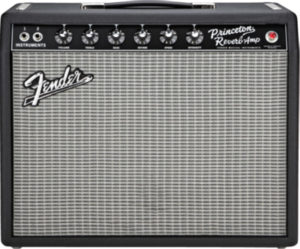 What is the difference between open and closed speaker cabinets?
What is the difference between open and closed speaker cabinets?
The open cabinets let most of the sound escape out of the back, whereas the closed cabinets keep all the sound in and only let it out via the speakers. Closed cabinets create a more compact type sound, which is preferred by the rock/metal players. You can see this displayed in the Marshall stacks that grace the stage of your rock or metal hero.
The blues/jazz players tend to prefer the open back sound and you can see this demonstrated in the players like B.B. King, Bruce Forman, Robben Ford, etc. Overall it is a personal preference thing and you should try them both out before you buy an expensive rig.
Personally I prefer the open back sound now, but I used to be a closed back fan when I played metal/heavy rock in my early musical years.
………………………………………………………………………………………………………………………………………………………………………..
Do you need any help or other information on today’s topic of interest? Or maybe enquire about guitar lessons with master teacher Kevin Downing? If so, click here or call (06) 357 0057
If you are really serious about your guitar skills then you need to read Kevin’s book The Secrets of Successful Practising for Guitarists
Now also available on Amazon click here
………………………………………………………………………………………………………………………………………………………………………..
Avoid trying to be perfect. It is impossible. It is a better mindset to try to be playing the best you can possibly be at all times because you never know who is listening to you play or watching what you do. Some days you actually play better than normal, depending on the mood you are in.
………………………………………………………………………………………………………………………………………………………………………..
The action I’m referring to here is the action or specific setup done to your guitar to make your guitar play and sound better.
One of the problems is a lot of people play guitars that haven’t been serviced for a long time or ever. And it is much more motivating to play an instrument that has been set up correctly.
As Tommy Emmanuel says in a Guitar Player magazine interview: “Guitar is hard enough to play as it is…why make it harder by having a difficult setup? A lot of players don’t realise that they can have their action set up any way they want. I set the action as low as possible and the neck as straight as I can. A lot of people say you need a bit of neck relief to minimise fret buzz, but the moment that neck becomes dead straight like it was intended to be, the guitar becomes such a pleasure to play – it sustains better, and allows you to play more subtleties. There’s a little buzz in there if I really bang on the strings, but you’ll never hear it when I play.”
It is best if you get your guitar serviced every 12 to 18 months for general maintenance, or if you are changing string gauges by a competent repair person.
………………………………………………………………………………………………………………………………………………………………………..
Do you need any help or other information on today’s topic of interest? Or maybe enquire about guitar lessons with master teacher Kevin Downing? If so, click here or call (06) 357 0057
If you are really serious about your guitar skills then you need to read Kevin’s book The Secrets of Successful Practising for Guitarists
………………………………………………………………………………………………………………………………………………………………………..
Timesaver
Increase your time by concentrating on those activities that free up more time than they consume such as delegation. So get your accountant to do your bookwork, hire a housekeeper, lawnmower, painter, or whoever can do the work so you can be practising or gigging more.
………………………………………………………………………………………………………………………………………………………………………..
Playing wrong notes
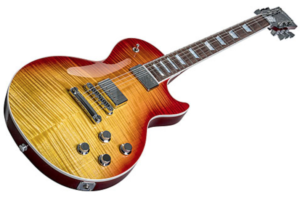
Many people ask me “What do I do when I play a wrong note?” To answer this question I will do it in two halves, I will assume you are just beginning to know a new piece, and I will assume you know the piece well that you are playing.
If you are just beginning to know a piece or maybe don’t know it well enough. For this you need to go through the difficult fingerings with no tempo at all. Play all the notes very slow so you can get the fingers and brain doing what they should. Only when you know the fingerings and music well should you put a tempo to it.
If you know a piece well, then it most probably is just a reading or mental error. You should proceed onto the next note without hesitation. Never go back and correct your wrong notes as this can turn into a bad habit as well. But if you keep making errors at the same place each time you play it, then better go over that part with no tempo when you have finished to get it right.
…………………………………………………………………………………………………………………………………………………………………..
Just do it
Did you know it is more important to do something immediately than it is to do it well? You shouldn’t put something off simply because you’re no good at it (like learning that new chord, scale, etc), you only learn by doing things, not delaying or putting things off or dumping it in the “too hard basket”. But in saying that you do need to learn things in the correct order so don’t get a head of yourself.
…………………………………………………………………………………………………………………………………………………………………..
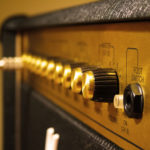 Keep a close eye on your equipment
Keep a close eye on your equipment
It came to my attention the other day that a person ran up on the stage and stole a guitar from a local gig here in my home town of Palmerston North while the band was having a break. Luckily a person from the audience noticed what was happening and tackled the thief, and the guitar concerned was returned.
When you are doing gigs or even jamming with friends in public places keep a close eye on your equipment, because if you aren’t, someone else is.
…………………………………………………………………………………………………………………………………………………………………..
Do you need any help or other information on today’s topic of interest? Or maybe enquire about guitar lessons with master teacher Kevin Downing? If so, click here or call (06) 357 0057
If you are really serious about your guitar skills then you need to read Kevin’s book The Secrets of Successful Practising for Guitarists
………………………………………………………………………………………………………………………………………………………………………..
 Keeping fingers warm for playing on colder days
Keeping fingers warm for playing on colder days
Now autumn and winter are starting to descend on us the weather is starting to get a bit colder with some serious cold snaps. On those cold snap days it is a great idea to wear gloves to keep those fingers warmed up and ready to play, especially if you are going to a gig or guitar lesson.
…………………………………………………………………………………………………………………………………………………………………..
Playing with fingertips is the key
At all times you need to be playing with your fingertips, unless you are barring that is. If you are not playing with your fingertips you will not get a quality sound. One common fault that inhibits using your fingertips is having the thumb coming over the top of the fretboard, so try and keep it about the middle of the neck and facing upwards.
…………………………………………………………………………………………………………………………………………………………………..
Do you need any help or other information on today’s topic of interest? Or maybe enquire about guitar lessons with master teacher Kevin Downing? If so, click here or call (06) 357 0057
If you are really serious about your guitar skills then you need to read Kevin’s book The Secrets of Successful Practising for Guitarists
………………………………………………………………………………………………………………………………………………………………………..
Make a Daily List
Every day, write a to-do list to help you focus on what has to be accomplished in your practising or getting ready for that next gig. Identify the priority stuff and get those get tackled first. Then tackle them. After that everything is easy.
…………………………………………………………………………………………………………………………………………………………………..
Guitars go out of tune quickly, and part of the problem is due to the weather. As you learnt in school that metal contracts and expands due to temperature changes in the atmosphere. Of course your guitar strings are made of metal so they will be affected. Other factors affecting tuning can be transporting it around in the boot of your car, putting it into carry bags which can turn the tuning pegs easily, etc.
Many guitarists never seem to get the idea that you need to tune your guitar as soon as you pick it up to play because your guitar could have been affected by any of the above elements.
Always use an electronic tuner when tuning, never use your ear, unless you are very experienced and know what you are doing. How can you tell if you are experienced or not? Tune your guitar by ear, then check it against your electronic tuner, if you are out on any one string you are not experienced enough to tune by ear.
Even professionals use electronic tuners and so should you. They tend to only use their ear if their guitar goes out of tune during a song, but that is an advanced technique.
One other thing, using an electronic tuner is an easy way to train your ear as to what your guitar should sound like and after a while you will memorise that. Tuning by ear and having your guitar not in tune, or even slightly out, will destroy any improvement in your ear.
…………………………………………………………………………………………………………………………………………………………………..
Do you need any help or other information on today’s topic of interest? Or maybe enquire about guitar lessons with master teacher Kevin Downing? If so, click here or call (06) 357 0057
If you are really serious about your guitar skills then you need to read Kevin’s book The Secrets of Successful Practising for Guitarists
………………………………………………………………………………………………………………………………………………………………………..
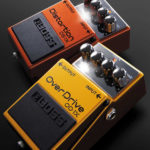 A Great Way to Getting A Better Sound
A Great Way to Getting A Better Sound
Many guitarists tend to play with the same sound setting on their guitar all the time. That is for every song they play and for every different style change. For example many rock players tend to use the bridge pickup with a little overdrive for taste, while the jazz players tend to use the pickup closest to the neck with the tone knob turned down a little and a clean amplifier sound. Many country players tend to use a Telecaster with a “slap back” delay sound.
There is no doubt that these settings sound great in the hands of a good player, but they can tend to sound very boring and predictable if you don’t be careful.
Many working guitarists I know have a problem with their sound, most students do too, and it is because they just don’t experiment with their equipment enough. In other words they don’t know what their equipment can really do. Do you? Really?
Here is a solution. You need to listen hard to your favourite recordings and determine what pickup the guitarist is using, then what effects, then if there are any other things happening that can alter the sound. After you have done all this you then need to replicate that yourself on your own gear.
I have settings that I like to use that include a chorus rhythm, slight overdrive, heavy overdrive (which I don’t use much), and a good clean sound (which I use most). They are the only effects that I use. I also know what they sound like on every pickup setting on all my guitars and amps.
I have not come across any guitar or amplifier that I cannot get a reasonably good sound out of, so if you can’t, you need to experiment more with what you have.
No matter what level you are, or whether you play acoustic or electric, you should always be searching to hear what your equipment can do.
To conclude you need to know exactly how to get the sounds you are hearing on your favourite recordings quickly, and you should have maybe twenty or thirty sounds that you can switch to quickly.
………………………………………………………………………………………………………………………………………………………………………
Is it best to practice standing up or sitting down?
This is a question that keeps coming up a lot. Many players also complain of the problem that they can only play sitting, but can’t play standing or Vise versa. So the way to practice all depends on how you play when you are performing.
If you tend to play guitar standing up like in most rock bands mostly, then you need to practice standing up. If you tend to perform mostly sitting down like classical players do, and some folk and jazz players, then practice sitting down.
Now here is a tip for when you practice sitting – try positioning your guitar over your left leg (assuming you are right handed), which is called the classical position. The main benefit of using the classical position when sitting down is that it’s the same as when you are standing so there is no need to get used to playing in two positions, which eliminates the above problem. You will find many electric players these days are adopting the classical position when sitting because of this benefit.
If you are an advanced player, another benefit of the classical position is that you can stretch much wider than you can otherwise.
………………………………………………………………………………………………………………………………………………………………………..
Do you need any help or other information on any of these topics? Or maybe enquire about guitar lessons with master teacher Kevin Downing? If so, click here or call (06) 357 0057
If you are really serious about your guitar skills then you need to read Kevin’s book The Secrets of Successful Practising for Guitarists
………………………………………………………………………………………………………………………………………………………………………..
Many music teachers out there tend to make the learning of music and guitar very complicated, but the legendary teachers are the ones who can make even very complicated concepts and practices simple. Many music students tend to complicate things as well, and think that if it is not complicated it can’t be good.
It is a standing joke around our studio that “everything is easy”. Yes, if it is not easy I believe we are doing something wrong as teachers. Many people believe rocket science is beyond them, but if you know anything about it, then that is simple too. The trick is in making complicated things easy for yourself.
Whenever we have had major name guitar players here for workshops like, Bruce Forman, Mike Stern, Robben Ford, etc., they all talk about how they tend to keep even the most complicated of things very simple and that they have the systems in place to achieve that. They invent systems that work for them. By keeping things simple means they can do things on the fly that many other players would not be able to do.
As guitarists we tend to make things more complicated for ourselves as we get more advanced, but that is the time we should be working on making things easier. For example, you could easily write a model solo over that chord progression you find a bit tricky to navigate, and improvise over the model solo. Or slow something down to 40 beats per minute to work on some tricky passage or technique you are working on. Just slowing things down can make a lot of things a lot simpler.
Just think for a minute and find something you are having trouble with. Then, think how can I make that problem simpler than it is now? Thinking like this will improve your practising and playing immensely.
How are you going to put this simplifying concept into your practising immediately?
Do you need any help or other information on any of these topics? Or, maybe enquire about guitar lessons with master teacher Kevin Downing? If so, click here or call (06) 357 0057.
……………………………………………………………………………………………………………………………………………………………………..
Amateurs practice to get it right – Professionals practice so they never get it wrong.
You might have heard this saying before, but if you haven’t it is very true for most guitar players. You do not have to be a professional to play and think like one, and it doesn’t take much extra effort to play like a pro. I have many students who can play at a pro level, but are still amateurs.
Generally, amateurs tend to practice something, say a lick, until they get it going great slowly, then quit it. Others will practice it up to the maximum tempo once, and then quit it. Then they start looking around for the next lick to learn. They tend to forget the licks after a short while.
Professionals on the other hand tend to practice a lick up to tempo at least 100 times, memorise it, then look for ways to integrate it into the music they are playing. Then they can use this lick at any time they want to.
How can you use this approach to improve your playing right now?
………………………………………………………………………………………………………………………………………………………………………..
Do you need any help or other information on any of these topics? Or, maybe enquire about guitar lessons with master teacher Kevin Downing? If so, click here or call (06) 357 0057
If you are really serious about your guitar skills then you need to read Kevin’s book The Secrets of Successful Practising for Guitarists



